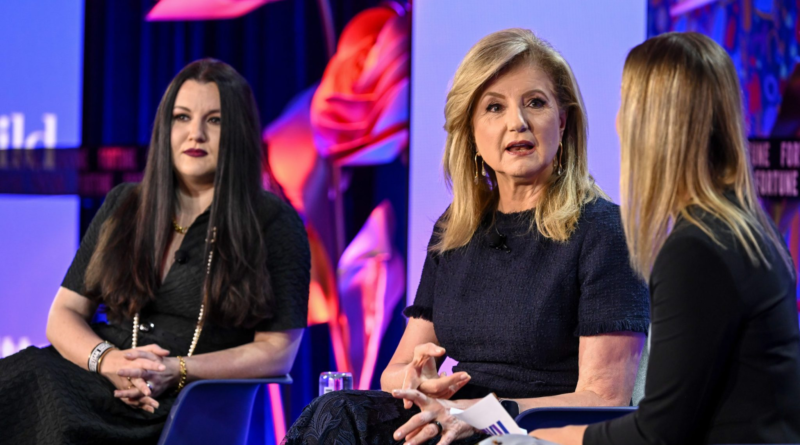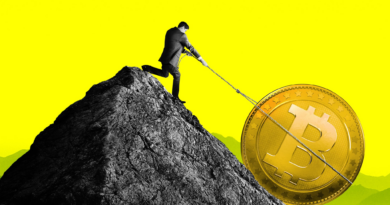Why Arianna Huffington believes AI will transform health care beyond the doctor’s office
In 2020—right about when much of America might’ve been using Instacart for the very first time to avoid COVID at the supermarket—the company’s soon-to-be CEO, Fidji Simo, was “falling apart from head to toe,” health-wise. She was diagnosed with an autoimmune condition, learned that the level of research being done on such illnesses was “appalling,” and was prompted to cofound the Metrodora Institute, enrolling patients in studies and using AI to gather “all 360 data points on them,” including genetics, immune profiling, reported symptoms, and environment.
Years before, another leader was dealing with her own health woes: Arianna Huffington, who famously passed out at her desk in the midst of working 18-hour days to get the Huffington Post up and running. She broke her cheekbone in the fall, woke up in a pool of blood, and was soon diagnosed with burnout.
“I thought I didn’t have the luxury to take care of myself,” Huffington told Fortune editor-in-chief Alyson Shontell on Tuesday at Fortune’s 2024 Most Powerful Women Summit in Laguna Niguel, Calif., where she shared the stage with Simo to discuss how their own health journeys have informed their current focus: The potential power of AI in changing health care as we know it.
Typically, noted Simo, the emphasis on AI in the health space is on AI and drug development and AI in diagnostics. “But,” she asked, “what about AI and everyday health?” That’s where the now-CEO of Instacart, and Huffington—as the founder and CEO of Thrive Global who recently joined with the OpenAI startup fund to launch Thrive AI Health—have set their sights.
Because really, said Huffington, “Sometimes CEOs say, ‘oh, wellbeing is so soft. We need to focus on productivity and business metrics.’ Wellbeing is a productivity multiplier. If your employees are sick or stressed or depleted, do you think they’re going to perform at their best?”
Below, some powerful takeaways from the conversation.
Using data to provide personalized disease prevention plans
One way experts believe AI could be a key unlock in the future of health care is its ability to help organize and analyze data. That could help reveal patterns and behaviors that need to change to improve an individual’s health.
“At the heart of this problem is a data problem,” said Simo, adding that it’s an issue she believes AI can tackle. That’s because with it, “we’re going to have way more ability to collect a lot more data, to mine that data, to find better insights, and then to use those insights to tell people how to change their behavior.”
That’s something particularly needed when it comes to nutrition, she said, pointing out that the healthcare system in the US spends about a trillion dollars—the value of the entire US food system—on diet-related diseases. “So that means that for every dollar you spend on food, the health care system spends an additional dollar treating you for all of the problems that the food creates. That’s pretty mind-boggling when you think about it.”
Some studies have shown that insurance companies would save hundreds of billions down the line if they funded the cost of healthy food, Simo added—noting that, to make that possible, you need technology platforms to make it easy.
“You need these insurance companies to have a tech platform that can scale food as medicine. You need doctors to be able to prescribe food as easily as it is to prescribe medication, and right now that’s simply not the case,” she said. “And then you need patients to be able to follow these changes in behavior in a way that’s really dead simple for them to be able to do so that you can see over time these numbers changing.”
Huffington agreed, calling “our daily behaviors” a “neglected tool in healthcare.” She pointed out that while some of our health is based on genes and medical care, the majority comes down to daily behaviors.
“Our motto at Thrive is ‘health is what happens between doctor visits.’ People go and have their annual physical. And what happens in between?…These are the five key behaviors—sleep, food, movement, stress management, and connection. Addressing this is really a miracle drug, and AI has a unique power to address this problem because of hyper-personalization.”
So instead of talking with your doctor about nutrition and getting the pat recommendation of trying a Mediterranean diet, AI can give specifically-tailored ideas.
“With AI, we know everything about you,” said Huffington, thanks to the AI health codes Thrive is building with Open AI to collect all the data an individual is willing to share—biometric data, lab data, medical data, and also references. “What foods do you like? How do you like to move and exercise? How do you sleep?” From that come the hyper-personalized recommendations.
“It may tell you ‘At 3:15 you are picking up your daughter from school, so go on a 10-minute walk in the afternoon.’ Or ‘you normally have three sodas. Can you replace one of them with sparkling water and lemon?’ So it’s very, very detailed and very applicable to you.” It can even create personalized resets that can interrupt stress with a 60- or 90-second burst of joy, through quotes, music, or anything else that personally gives pleasure. And through those tailored “micro steps,” she said, one can begin to adopt healthier habits.
The importance of making AI technology accessible
Both Simo and Huffington expressed their excitement over the future of health AI. “I think we’re about to witness a massive explosion in intelligence,” said Simo. “Imagine if every single one of you had a PhD-level assistant in your discipline available 24/7 to help you realize anything that’s on your mind. I think that’s what we’re very close to…and being able to, as a result, crack problems that we haven’t cracked before.”
But patience is still in order.
“Usually, there is a gap of 17 years between a scientific breakthrough being discovered and that breakthrough impacting patients in the clinic,” Simo noted. “Seventeen years is a really long time, and so my hope is that AI also helps us really narrow that gap. But I know from experience that it is going to take a while for society to really absorb this massive innovation that’s coming our way and actually turn it into applications that are really useful.”
Huffington believes that in order to achieve this change, technologies are going to have to focus on democratizing access, because right now, “anybody with resources” is all in on changing their behavior.
“People are competing with how much sleep they got. ‘I’m wearing my Oura ring.’ ‘Have you given up ultra-processed foods altogether?’ It’s constant,” she said. “But millions and millions of people are being left behind, and health inequities are huge and growing bigger every year.”
More on workplace wellbeing:
Subscribe to Well Adjusted, our newsletter full of simple strategies to work smarter and live better, from the Fortune Well team. Sign up for free today.




